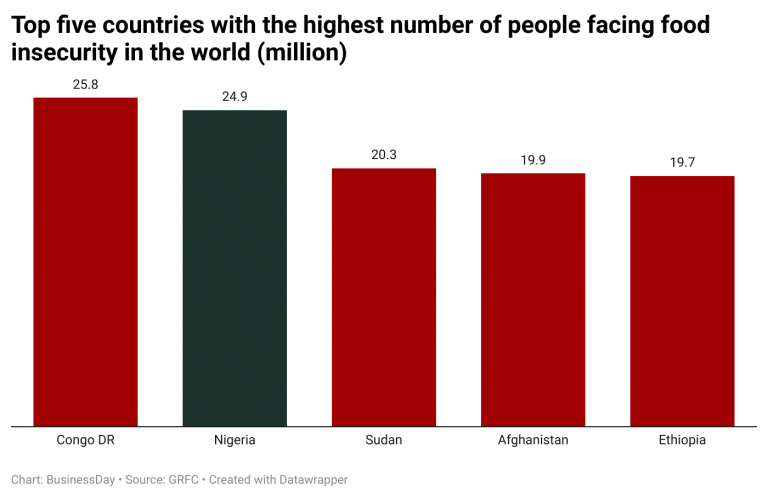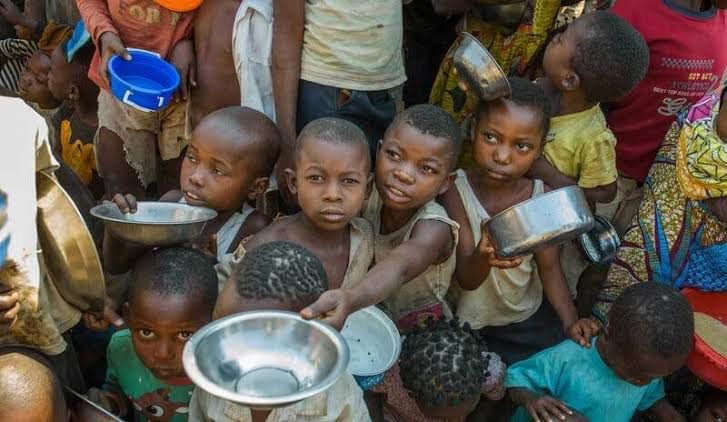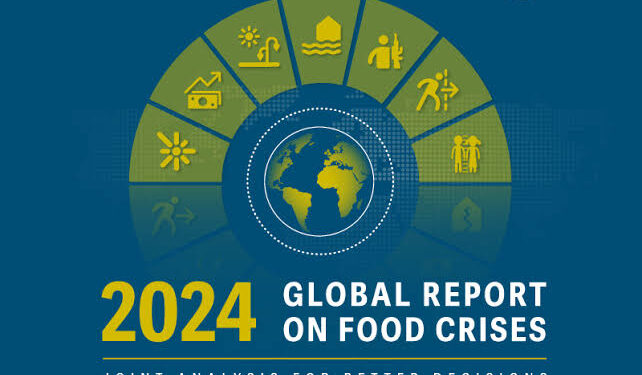According to the 2024 Global Report on Food Crises (GRFC), Nigeria continues to climb the rankings, moving from fourth to second among the countries with the most food insecurities in the world.
The report, which covers 59 countries, ranks the Democratic Republic of the Congo as the country with the most food insecurity in the world; 25.8 million in a country with less than 100 million people.
Nigeria is Africa’s most populous country with over 220 million people, with over 24 million people suffering from food insecurity and hunger.
Other countries in the top five most food-insecure countries include Sudan, Afghanistan, and Ethiopia, with populations of 20.29 million, 19.9 million, and 19.7 million respectively.

The GRFC highlighted conflict and insecurity, economic shocks, and extreme weather as the main causes of food insecurity, noting that in 2023, about 282 million people in 59 countries will suffer from high levels of acute food insecurity requiring emergency intervention.
“A food crisis is a situation where acute food insecurity requires urgent action to protect and save lives and livelihoods at local or national levels and exceeds the local resources and capacities to respond,” the report said.
In 2016, Nigeria was the fourth country with the highest number of people experiencing food insecurity but rose to second place in 2017. However, in 2018, it plummeted to eighth place. Africa’s largest economy dropped again to ninth place in 2019 but lost steam as it rose to sixth place in 2020, fifth place in 2021, fourth place in 2022, and second place in 2023.

“The drivers of food crises are interlinked and mutually reinforcing. Acute food insecurity is rarely driven by a single shock or hazard, but rather by the interaction between shocks and underlying poverty, structural weaknesses, and other vulnerability factors,” report stated.
According to the report, 21 of the 59 countries analyzed experienced food insecurity due to economic shocks exacerbated by structural weaknesses. Twenty of these were due to conflict or insecurity, and 18 were due to extreme weather events.
Nigeria is currently facing severe food insecurity as food-producing areas are plagued by insecurity, forcing farmers to abandon their farms and find other work.
The government’s economic reforms over a year ago (removal of gasoline subsidies and devaluation of the naira) have pushed up prices, putting further pressure on already struggling Nigerians.
These fiscal imbalances have caused the country’s inflation rate to rise to 34.19 percent, while food prices continue to rise, leaving many people without food. The government has taken steps to mitigate the impact of these reforms. However, these mitigating measures have not yet succeeded in lowering the already elevated prices of basic food items.































